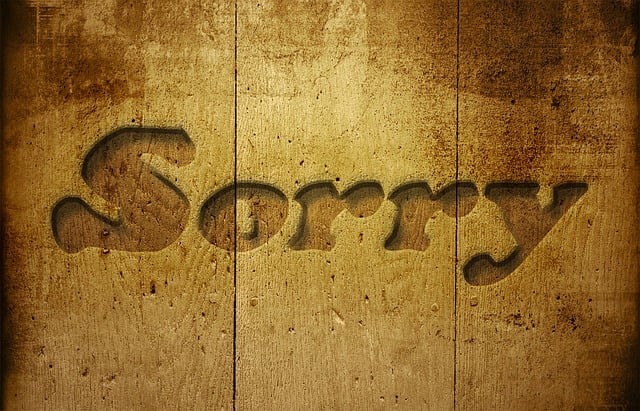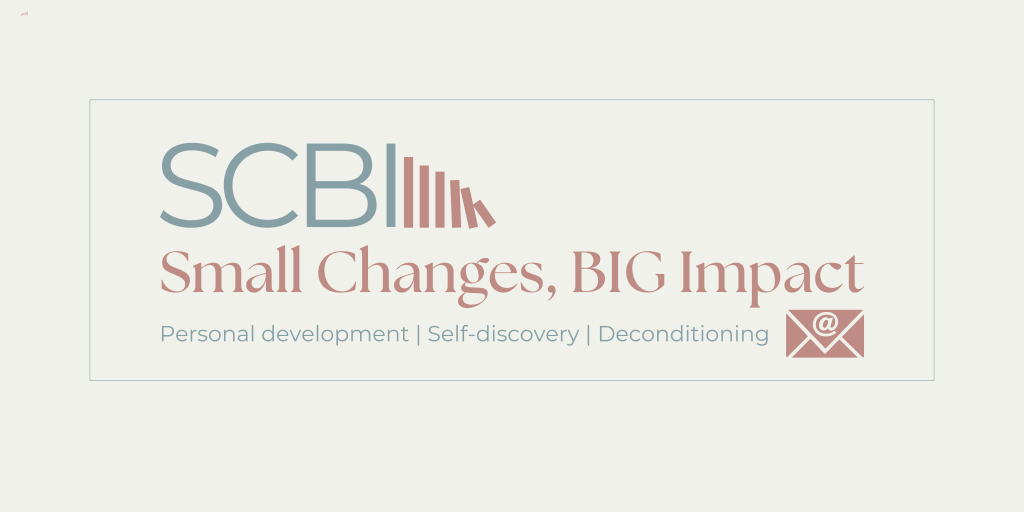One thing that is often a ‘stereotypical’ assumption that people associate with people pleasing is the overuse of apologising. (This is not true in all cases, by the way, but it’s interesting that we jump to this assumption by our often inaccurate view of what people pleasing really is.)
For some people, saying sorry or apologising is one of the hardest things to do in life. It can feel like a punch to the gut when it comes to your pride, your ego or your confidence. For some, they may not even have ever said sorry or know how to do it.
For others, saying sorry or apologising has become an easy, natural ‘go-to’ behaviour.
The Role of Saying Sorry
Apologies and saying sorry plays an important role in all of our lives and it plays out in different ways. Some people say sorry too often, while others never say it and some are somewhere in between.
Saying sorry can play a few different roles in life and can be used for various reasons:
- When you are genuinely sorry for something you judge you did ‘wrong’ or you have hurt or been unfair to someone, whether intentionally or unintentionally. (integrity)
- To avoid conflict and confrontation. (fear)
- False guilt (feeling sorry or guilty for something that you are not actually responsible for)
- As a result of a feeling of ‘duty’ to say sorry (expectation)
*I am not including ‘sarcasm’ as one of the reasons, however tempting it is!
Someone who over apologises will do so for different reasons. Some of the key underlying reasons can be:
- Low self-esteem
- People pleasing (wanting to manage other people’s emotions and make them feel better)
- Habitual/conditioning where they took on the role of apologising in the past and continue to do so out of habit and routine
- Being very empathetic and taking on other people’s hurt and emotions as their own and wanting to ‘fix’ it for them
Some of these underlying reasons can overlap. You can be a people pleaser but also have low self-esteem or a habit of saying sorry, for example. But with each of these, what is the common theme is that you take on the energy of ‘fault’ in one way or another onto you. You are sorry for someone else’s feelings, you are sorry for taking up space and time, you are sorry for something you did/someone else did, etc.

Exploring the Power Sorry Has In Your Life
The word sorry has a lot of power. Elton John sang about it and so did Madonna, Nirvana, Justin Bieber… What can I say, it’s a popular topic and word! (Does the subject line of my email make sense now? 😂)
The power that lies behind sorry is that it can convey such deep feelings of fault. When you say sorry, you are connecting with the energy of fault in one way or another. Yet, it can also initiate a healing process in yourself as well as the person you are saying it to.
Obviously, this is not what we’re consciously thinking when we just use the word ‘sorry’ but this is the energy behind it when you take the time to really think about it.
A great experiment and exercise is to see how the word ‘sorry’ plays out in your life. It’s a great way to learn a lot about yourself.
There isn’t a right or a wrong way to use it, there isn’t a number of times that’s too much or too little. It’s not 6, 18 or 521. Life doesn’t come with a rigid set of rules. (I know that at some points in my life I sometimes wish it did! 😜)
The way you use the word ‘sorry’ (or lack of!) can be very revealing and insightful for your own personal development. If you’re up for it, spend a few days or a week paying attention to how sorry shows up for you.
Pay attention to these things in life to get some insight:
- How often do you say sorry in a day?
- Do you notice you often say sorry or apologise to the same person/people in your life?
- Do you say sorry as a natural reaction/habit without actually processing whether or not you have done something that needs apologising for?
- When you say the word sorry, do you actually mean it or is it more of a ‘solution’?
- When you say ‘sorry’, how do you feel afterwards?
- When do you hear sorry being said to you? How does it make you feel?
- What are the reasons other people say sorry to you?
- Is it the same person/people that apologise to you regularly?
- What would happen or how would you feel if you didn’t say sorry when you normally would have?
When you start being more aware of and acknowledging how sorry shows up in your life, you can make changes where you feel you want to. If you feel you say it too much, ask yourself why you might be taking on the responsibility of fault so often. What’s the underlying reason behind you saying sorry?
If you find you never say it, ask yourself why that is? Knowing how you feel after you say sorry will help you understand your relationship with apologies and whether or not you feel you want to delve into some inner work around this area. Is saying sorry something you feel compelled to do? What can you learn about that? And if a particular person comes up time and time again when it comes to you or them saying sorry, this gives you a chance to really reflect on the relationship and what the dynamics below the surface might be.
Self experiments and explorations are always fun because you can really learn a lot from them. I’m sorry if this has felt like you’ve been given a time consuming task to do. (Actually, am I sorry or am I just saying that? Oh no, I’m over analysing my own sorries in this email now! 😜)
Remember that my emails and suggestions are merely that – suggestions. You don’t ever HAVE TO do anything. They are always just opportunities if it feels useful or aligned for you at this time. So don’t be sorry if you choose not to do this. 😉
Wishing you a beautiful weekend and enjoy the beautiful half moon and Jupiter in the sky! 🌗
SUMMARY:
The small change → be aware of the power of sorry and how it shows up in your life
The big impact → noticing your patterns and relationship with apologising will allow you make shifts in how you use it to consciously create more empowerment and less feelings of being at fault
Martina x
PS – Get excited for some new resources and events coming in this new year. Boundaries, self-awareness and self-reflection are hot topics and are essential if you want a life of more ease, inner-peace and confidence! And don’t forget, when things feel too much, you can always book your Energetic Detox to break up and release years worth of stored and blocked energy. Book here.

